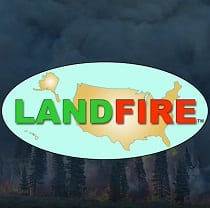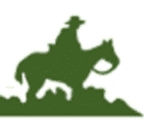Webinar
Webinar recording (1:00:34)
The Sagebrush Conservation Design (SCD) is a tool to identify intact sagebrush areas and address the largest threats to the ecosystem. The SCD focuses on first protecting intact and functioning sagebrush ecosystems, called Core Sagebrush Areas, then works outward toward more degraded areas (i.e., “Defend the Core”). The premise behind the Defend the Core approach is simple: focus resources first on preventative actions that retain ecosystem services in Core Sagebrush Areas because they are more cost-effective and more likely to be successful. The November 2024 special issue of Rangeland Ecology and Management is dedicated to applying the SCD to improve conservation outcomes across the sagebrush biome in the face of pervasive ecosystem threats. This special issue provides new science and real-world examples of how we can implement the SCD to save a biome. The overarching themes are: 1) Business-As-Usual Won’t Save the Sagebrush Sea, 2) Better Spatial Targeting Can Improve Outcomes, 3) Conservation Planning is Needed to Develop Realistic Business Plans, 4) Targeted Ecosystem Management: Monitoring Shows Managing for Sagebrush Ecological Integrity is Working, 5) Maintaining Sagebrush Ecological Integrity is Ecologically Relevant, and 6) There is Only Hope if We Manage Change. The collective articles show that there is no shared plan to save the biome, yet a business plan for the biome could ensure realistic goals. The sagebrush biome still has vast expanses of open spaces with high ecological integrity at a scale that is rare in other ecological systems within the lower 48 states. If we focus on the common ground of the main drivers of ecosystem change, implementing the SCD and Defending the Core are viable strategies to help save a biome.
Webinar recording (7:49)
The recent fires that swept the central and southern plains are catastrophic and exhibited extreme fire behavior. Fire behavior is a result of fuels, weather and topography and in this case the weather and fuels were extreme, and most importantly, the timing was just right. In this webcast, USFS, Research Ecologist Dr. Matt Reeves analyzes rangeland fuel conditions in the southern plains and keys in on the critical aspect of growing season position that is so influential to fire hazard. The conditions have to be just right to produce the type of outcomes witnessed in March and the high amount of standing dead grass (the minimum loading of herbaceous material in the fires we have seen to date was about 1200 pounds per acre on average), with no growth yet of green herbaceous material in the 2025 growing season permitted the extreme fire behavior across the region. All previous recordings are located on the Reading the Tea Leaves page.
Webinar recording.
Wildfire analysis is increasingly recognized as a critical tool for effective wildfire management across Europe. However, access to high-quality data and advanced analysis remains prohibitively expensive, often because countries have to reinvent the wheel when it comes to data collection, integration, and reporting.
Webinar registration
Presenter: Sarah Anderson, Ecologist, Terrestrial Condition Assessment Coordinator
Partner Organization: US Forest Service, Terrestrial Condition Assessment Program, Natural Resources Staff Area, Washington DC Office
Webinar registration
Presenter: Sam Amato, Fire Application Specialist, Forest Service, Wildland Fire Management RD&A
Webinar join link.
The NRI program collects and produces scientifically credible information on the status, condition, and trends of land, soil, water, and related natural resources on the nation’s non-federal lands. It is the largest field-based survey of natural resources in the world. Inventories of natural resources have been conducted for over 65 years on non-Federal lands. For rangelands, the 12 current inventory and assessment protocols were developed in a collaboration of federal agencies, were tested for several years across the continental United States, and were set in 2004. The same set of protocols was applied to Federal rangelands beginning in 2009. This presentation describes the protocols and some of the new relevant information being generated by this longitudinal statistical study of on-site rangeland inventory.
The US Geological Survey Land Management Research Program and the Great Basin Fire Science Exchange teamed up to bring you updates in sagebrush, fire, and wildlife related research. On 3/6/2025, USGS researchers, Matt Rigge, Martin Holdrege, and Shawn O’Neil shared research on vegetation trends and their relationships to climate, invasion, and disturbance, Gregor Siegmund, Alice Stears, Mike Duniway, and Gayle Tyree shared their latest research on planning and predicting succss of restoration treatments, and Will Janousek shared science on elk management. Below are the webinar recording and resources associated with each presentation.
To view a complete list of resources (completed and planned), please view the program for this slate of presentations.
3/6 – Climate, vegetation trends, and big game
Rangeland Condition Monitoring Assessment and Projection (RCMAP) vegetation trend summaries
Project webpage
Multi-Resolution Land Characteristics Consortium
RCMAP fractional component time-series data across western North America (1985-2023)
Integrating climate, sagebrush ecological integrity, and grazing
Project webpage
Observed wildfire frequency, modelled wildfire probability, climate, and fine fuels across the big sagebrush region in the western US
Influence of future climate scenarios on habitat and population dynamics of greater sage-grouse
Project webpage
Understanding and forecasting environmental controls over plant establishment in sagebrush ecosystems to enhance restoration success
Project webpage
Treatment and post-fire assessment tools for management of the sagebrush ecosystem
Project webpage
Science to support elk management efforts to reduce chronic wasting disease (CWD) risk
Project webpage
The US Geological Survey Land Management Research Program and the Great Basin Fire Science Exchange teamed up to bring you updates in sagebrush, fire, and wildlife related research. On 2/27/2025, USGS researchers, Matt Germino, Doug Shinneman, and Beth Horning shared research on fuels, fuel breaks, and economics useful to decision making, Matt Germino and Morgan Roche shared research on herbicide treatments for invasive annual grasses, and Lea Condon shared research on the threats to biocrust in sagebrush ecosystems. Below are the webinar recording and resources associated with each presentation.
To view a complete list of resources (completed and planned), please view the program for this slate of presentations.
2/27 – Fire, fuels management, and invasive species
Webinar recording
Longevity of herbicides targeting exotic annual grassed in sagebrush-steppe soils
Project webpage
Patchy response of cheatgrass and nontarget vegetation to indaziflam and imazapic applied after wildfire in sagebrush steppe
A collaborative and iterative framework for delivering applied fuel break science: With a focus on sagebrush ecosystems and the Great Basin
Project webpage
Future direction of fuels management in sagebrush rangelands
UAS survey of sagebrush fuel breaks
Project webpage
Invasive annual grass – An economic assessment
Project webpage
Longevity of herbicides targeting exotic annual grasses in sagebrush-steppe soils
Project webpage
Intra-site sources of restoration variability in severely invaded rangeland: Strong temporal effects of herbicide–weather interactions; weak spatial effects of plant community patch type and litter
Synthesis of indaziflam outcomes for protecting sagebrush ecosystems
Project webpage
Can ruderal components of biocrust be maintained under increasing threats of drought, grazing, and wild horses?
Project webpage
Season of grazing interacts with soil texture, selecting for associations of biocrust morphogroups
Biological soil crusts are more prevalent in warmer and drier environments within the Great Basin ecoregion: Implications for managing annual grass invasion
The US Geological Survey Land Management Research Program and the Great Basin Fire Science Exchange teamed up to bring you updates in sagebrush, fire, and wildlife related research. On 2/20/2025, USGS researchers, Rob Arkle, Doug Shinneman, and Michelle Jeffries, shared research on monitoring and planning, Adam Noel and Sarah Halperin shared their latest research on pinyon-juniper treatments and decision support. Below are the webinar recording and resources associated with each presentation.
To view a complete list of resources (completed and planned), please view the program for this slate of presentations.
2/20 – Monitoring, pinyon-juniper, and fuels management
Webinar recording
Planning for conservation delivery success: Linking biome-wide Sagebrush Conservation Design to local treatment planning by leveraging landscape restoration outcomes
Land Treatment Exploration Tool (LTET)
Technical transfer tools for the Nevada and Oregon rangeland monitoring project (NORMP)
Oregon rangeland monitoring program: SageCon
Rapid and Other Assessment and Monitoring Methods (ROAM) project
ROAM project website
Pinyon-juniper treatments for minimizing climate and fire vulnerability
Project website
Most PJ woodland species distributions projected to shrink under climate change
Data of estimated environmental suitability of PJ species under various climate scenarios
Earth Engine App with PJ projected distributions
Synthesizing scientific information on treatment and natural disturbance effects on pinyon-juniper woodlands and associated wildlife habitat
Project website
Ecological effects of PJ removal in the western US: A synthesis (2014-2021)
The US Geological Survey Land Management Research Program and the Great Basin Fire Science Exchange teamed up to bring you updates in sagebrush, fire, and wildlife related research. On 2/6/2025, USGS researchers, Stephen Boyte and Morgan Roche shared their latest research on cheatgrass and fine fuels, Bryan Tarbox and Erica Christensen shared research on restoration treatment effectiveness, and Cam Aldridge and Cara Applestein shared research on monitoring and predictions to help restoration. Below are the webinar recording and resources associated with each presentation.
To view a complete list of resources (completed and planned), please view the program for this slate of presentations.
Individual presentations and associated resources, within the project webpage with links to data and publications:
Develop annual herbaceous percent cover maps in near-real time
Project webpage
Exotic annual data
Proliferation of fine fuels: Assessing under future climatic conditions
Optimizing Sagebrush Restoration project webpage
Proliferations project webpage
Optimizing sagebrush restoration and management actions to increase connectivity within the Sagebrush Conservation Design
Project webpage
Prioritizing Restoration of Sagebrush Ecosystems Tool (PreSET) decision-support tool
Leveraging soil, vegetation, fire, and land treatment data to inform restoration across the sagebrush biome
The Sagebrush Conservation Design
Assessing cheatgrass treatment efficacy across the sagebrush biome
Project webpage
Sagebrush recovery modeling website and associated projects
Sagebrush recovery projections layers
Leveraging soil, vegetation, fire, and land treatment data to inform sagebrush restoration
Simulating trends in land health components under treatment scenarios and Sagebrush Conservation Design
Project webpage
Sagebrush biome-wide vegetation change monitoring and warning system
Project webpage
Vectors of annual grass invasion – Roche et al. Predicting reburn risk to restoration investments
Projects webpage




